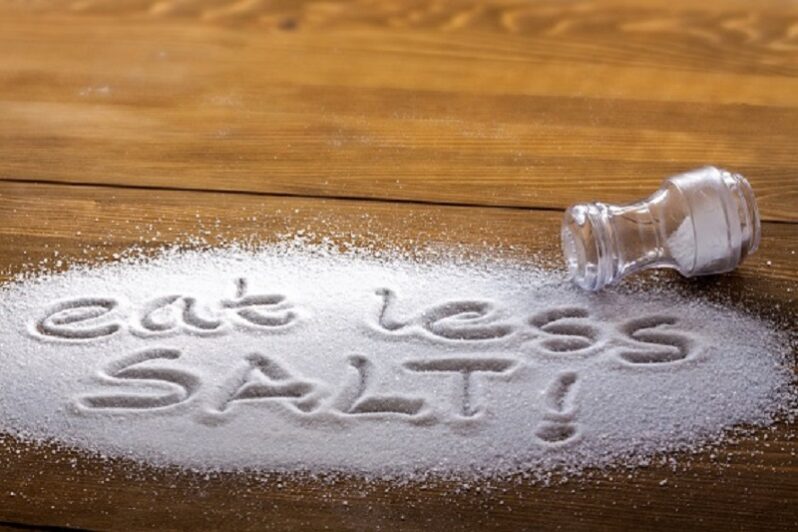
According to the American Heart Association, excess levels of dietary sodium (salt) may put you at risk for:
- Enlarged heart muscle
- Headaches
- Kidney disease
- Osteoporosis
- Stroke
- Heart failure
- High blood pressure
- Kidney stones
- Stomach cancer
The American Heart Association (AHA) recommends no more than 2,300 mg of sodium a day and an ideal limit of less than 1,500 mg per day for most adults, especially for those with high blood pressure.1
Here is a detailed infographic from AHA: “Excess Levels of Sodium: How Too Much Sodium Affects Your Health”.
Decreased sodium intake helps to reduce blood pressure and risk of cardiovascular disease, stroke and end-stage kidney disease. A principal benefit of lowering sodium intake is a corresponding reduction in high blood pressure.2
The World Health Organization (WHO) states an estimated 2.5 million deaths worldwide could be prevented each year if global salt consumption were reduced to the WHO recommended level of approximately 2,000 mg a day.3
 The Centers for Disease Control and Prevention (CDC) notes: “February is American Heart Month, a time when all people — especially women — are encouraged to focus on their cardiovascular health. This Heart Month, the Division for Heart Disease and Stroke Prevention (DHDSP) is encouraging women to listen to their hearts and speak up for their health. Women in the United States are experiencing unacceptable and avoidable heart-related illness and death. Over half of US women do not recognize that heart disease is the leading cause of death for women.”4
The Centers for Disease Control and Prevention (CDC) notes: “February is American Heart Month, a time when all people — especially women — are encouraged to focus on their cardiovascular health. This Heart Month, the Division for Heart Disease and Stroke Prevention (DHDSP) is encouraging women to listen to their hearts and speak up for their health. Women in the United States are experiencing unacceptable and avoidable heart-related illness and death. Over half of US women do not recognize that heart disease is the leading cause of death for women.”4
References:
- American Heart Association. Why Should I Limit Sodium?
- Appel L et al. The importance of population-wide sodium reduction as a means to prevent cardiovascular disease and stroke: a call to action from the American Heart Association. Circulation. 2011;123:1138–1143.
- World Health Organization. Sodium Reduction. September 14, 2023.
- CDC. American Heart Month. February 16, 2024.
Related Reading:
MSG Promotes Significant Sodium Reduction and Enjoyment of Better-for-you Foods

